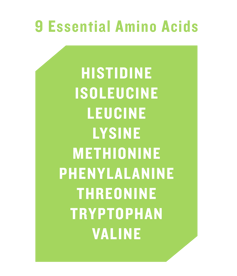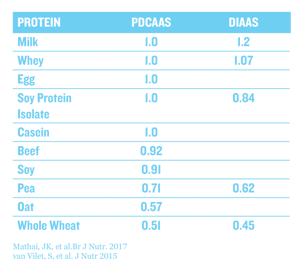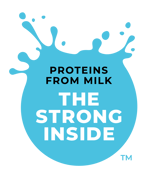NOT ALL PROTEINS ARE CREATED EQUAL
Posted by Lindsey Ormond, Director of Research & Development on Mar 19, 2020 12:59:11 PM
Consumers are waking up to the benefits that dietary protein can provide. From endurance athletes, and weekend warriors, to those in their advancing years, however, not all proteins are created equal. When it comes to the composition of amino acids in protein, some sources of protein over others are better at meeting human requirements.

Proteins are composed of building blocks called amino acids, which are then joined together by peptide bonds to create larger peptide units. There are 20 amino acids in the diet, 9 of which are essential, meaning they must be consumed in the diet as the human body cannot synthesize them itself. Protein quality is assessed based on the amino acid composition of a protein, its ability to satisfy protein requirements, and how well it is absorbed by the body.
 Dairy proteins are naturally some of the highest quality proteins around, as confirmed by both the current gold standard method, PD-CAAS (Protein Digestibility Corrected Amino Acid Score) and the proposed new method, DIAAS (Digestible Indispensable Amino Acid Score).
Dairy proteins are naturally some of the highest quality proteins around, as confirmed by both the current gold standard method, PD-CAAS (Protein Digestibility Corrected Amino Acid Score) and the proposed new method, DIAAS (Digestible Indispensable Amino Acid Score).
When compared to other protein sources, such as plant proteins, dairy comes out on top, as it has a better composition of amino acids that are well absorbed by the body. For example, to get 2.7g leucine (the amount required for protein synthe-sis) would require either 25g whey protein, 54g hemp protein or 38g pea protein. Furthermore, there is significantly more raw material required, which then impacts flavor and functionality of the finished product.

To learn more about the benefits of proteins from milk, visit Milk Specialties’ Industry Partner: The Strong Inside.
Topics: HUMAN NUTRITION
